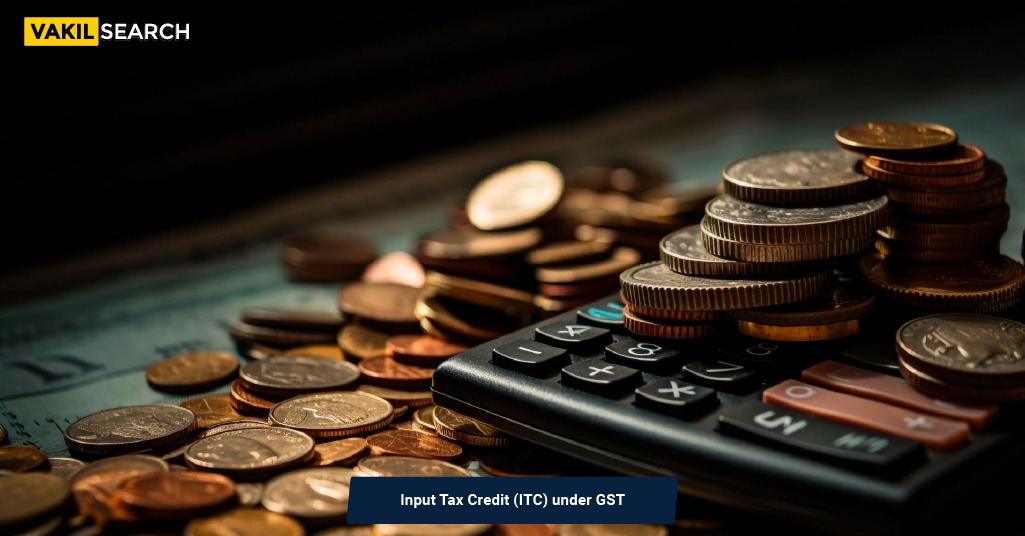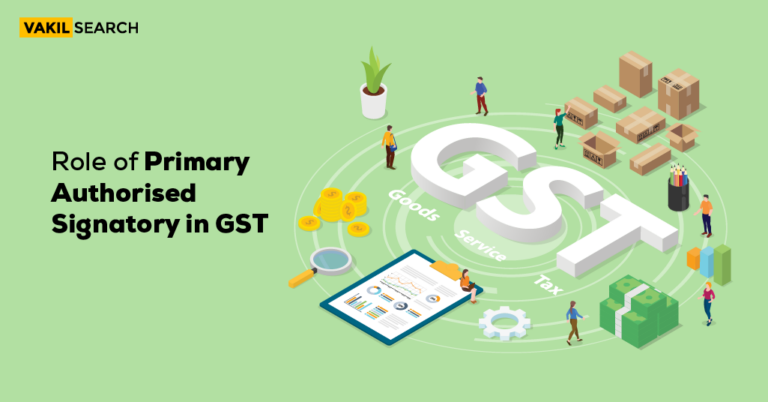Input Tax Credit (ITC) allows businesses to offset GST paid on inputs against their output tax liability, promoting tax neutrality and reducing the tax burden.
What is Input Tax Credit (ITC)?
Input tax credit (ITC) is a mechanism under the Goods and Services Tax (GST) regime that allows businesses to set off the GST paid on their inputs against the GST payable on their outputs. This helps to reduce the overall tax burden on businesses and makes them more competitive.
Latest Updates on ITC
The following are some of the latest updates on ITC under GST:
- From 1, January 2022, businesses can claim ITC only on invoices that are reported by the supplier in GSTR-1/IFF and appear in their GSTR-2B.
- Businesses can carry forward unclaimed ITC to the next financial year.
- Businesses can claim ITC on reverse charged supplies, provided they have a tax invoice from the supplier.
- Businesses can claim ITC on goods and services that are used for making both taxable and exempt supplies, subject to certain conditions.
Who Can Claim ITC?
ITC can be claimed by any registered person under GST, including manufacturers, traders, service providers, and input service providers. However, there are certain exceptions, such as persons registered under the composition scheme and persons who supply exempted goods or services.
What Can Be Claimed As ITC?
ITC can be claimed on the following:
- Goods and services purchased for use in the course or furtherance of business
- Capital goods purchased for use in the course or furtherance of business
- Input services received for use in the course or furtherance of business
Ineligible Items for ITC
ITC cannot be claimed on the following:
- Goods and services purchased for personal use
- Goods and services exempted from GST
- Goods and services used for making exempt supplies
- Goods and services used for making supplies of goods and services that are subject to reverse charge
- Capital goods used for making exempt supplies
How to Claim ITC?
To claim ITC, businesses must have the following:
- A valid GST registration
- A tax invoice or debit note issued by the supplier of the goods or services
- Proof of receipt of the goods or services
- Proof of payment to the supplier
ITC can be claimed in the GSTR-3B return, which is filed monthly.
Conditions to Claim an Input Tax Credit Under GST
The following conditions must be met to claim ITC under GST:
- The goods or services must be received and used for business purposes.
- The tax invoice or debit note must be in the prescribed format.
- The tax must have been paid to the supplier.
- The ITC must be claimed within the specified time limit.
Reversal of Input Tax Credit
Input tax credit (ITC) reversal is the process of nullifying the ITC claimed on inputs or input services that are not used for business purposes or are used for making exempt supplies. ITC reversal may also be required in certain other cases, such as when the taxpayer fails to make payment to the supplier within 180 days from the date of the invoice.
Reconciliation of ITC
Reconciliation of ITC is the process of matching the ITC claimed in the GSTR-3B return with the ITC available in the books of accounts of the taxpayer. This is done to ensure that the taxpayer is claiming the correct amount of ITC and that there are no errors or omissions.
Documents Required for Claiming ITC
The following documents are required for claiming ITC:
- Tax invoice or debit note issued by the supplier
- Proof of receipt of the goods or services
- Proof of payment to the supplier
Special cases of ITC
ITC on Job Work
When a business outsources work to another business, it can claim ITC on the inputs and input services that are used in that work. This is known as ITC on job work. To claim ITC on job work, the business must have the following:
- A valid GST registration
- A tax invoice or debit note issued by the job worker
- Proof of payment to the job worker
Banks and Financial Institutions
Banks and financial institutions can claim ITC on the goods and services that they purchase for their business activities. However, they cannot claim ITC on the following:
- Goods and services used for making exempt supplies
- Goods and services used for making supplies that are subject to reverse charge
- Capital goods used for making exempt supplies
ITC Provided by Input Service Distributor (ISD)
An input service distributor (ISD) is a registered person who provides input services to other registered persons. ISD can distribute the ITC that they have received from their suppliers to their customers. To claim ITC from an ISD, the customer must have the following:
- A valid GST registration
- A tax invoice or debit note issued by the ISD
- Proof of payment to the ISD
ITC on Transfer of Business
When a business transfers its business to another business, the transferee can claim ITC on the capital goods that are transferred to them. To claim ITC on transferred capital goods, the transferee must have the following:
- A valid GST registration
- A copy of the bill of sale or invoice for the transferred capital goods
- Proof of payment to the transferor
Time Limit to Claim an Input Tax Credit Under GST
The time limit to claim an input tax credit (ITC) under GST is the earlier of the following two dates:
- November 30 of the next financial year
- The date of filing the GST annual return
For example, if a business has a purchase invoice dated March 31, 2023, it can claim ITC on that invoice up to November 30, 2024, or the date of filing the GST annual return for the financial year 2023-24, whichever is earlier.
It is important to note that ITC can only be claimed on invoices that have been reported by the supplier in GSTR-1/IFF and appear in the taxpayer’s GSTR-2B.
If a business fails to claim ITC within the specified time limit, it will lose the right to claim that ITC. However, there are certain exceptions to this rule, such as when the business is unable to claim ITC due to a technical error or when it has disputed the tax liability.
Here are some tips for claiming ITC on time:
- Regularly reconcile your GSTR-2B with your purchase records to ensure that all of your invoices have been reported by your suppliers.
- File your GSTR-3B return on time and claim ITC on all of your eligible invoices.
- Keep a record of all of your ITC claims and supporting documents.
Input Tax Credit (ITC) FAQs
What is input tax credit?
Input tax credit (ITC) is a mechanism under the Goods and Services Tax (GST) regime that allows businesses to set off the GST paid on their inputs against the GST payable on their outputs. This helps to reduce the overall tax burden on businesses and makes them more competitive.
What is input tax credit with an example?
Let's say a business that manufactures shoes purchases raw materials for ₹100,000 and pays GST of ₹18,000 on the purchase. The business then sells the finished shoes for ₹200,000 and charges GST of ₹36,000 on the sale.
The business can claim ITC on the GST paid on the purchase of raw materials against the GST payable on the sale of finished shoes. This means that the business will only have to pay ₹18,000 in GST to the government.
Who is eligible for input tax credit?
All registered businesses under GST are eligible to claim ITC, except for those registered under the composition scheme and those who supply exempted goods or services.
What are the benefits of ITC?
ITC has a number of benefits for businesses, including:
- Reduced overall tax burden
- Improved cash flow
- Increased competitiveness
- Reduced administrative costs
How does ITC work in GST?
To claim ITC, businesses must have the following:
- A valid GST registration
- A tax invoice or debit note issued by the supplier of the goods or services
- Proof of receipt of the goods or services
- Proof of payment to the supplier
ITC can be claimed in the GSTR-3B return, which is filed monthly.
How is ITC calculated?
The amount of ITC that a business can claim is calculated as follows:
ITC = GST paid on inputs * (eligible ITC / total GST payable on outputs)
Can we get ITC refund?
Yes, a business can get an ITC refund if it has more ITC than GST payable on outputs. To claim an ITC refund, the business must file an application with the GST authorities.
Who Cannot claim ITC?
The following businesses cannot claim ITC:
- Businesses registered under the composition scheme
- Businesses that supply exempted goods or services
- Businesses that have not received the goods or services
- Businesses that have not paid the supplier
Can you claim ITC twice?
No, you cannot claim ITC twice on the same invoice.
Can we claim ITC on car purchase?
Yes, you can claim ITC on car purchase if the car is used for business purposes. However, you cannot claim ITC on the following:
- Cars that are used for personal use
- Cars that are used for making exempt supplies










